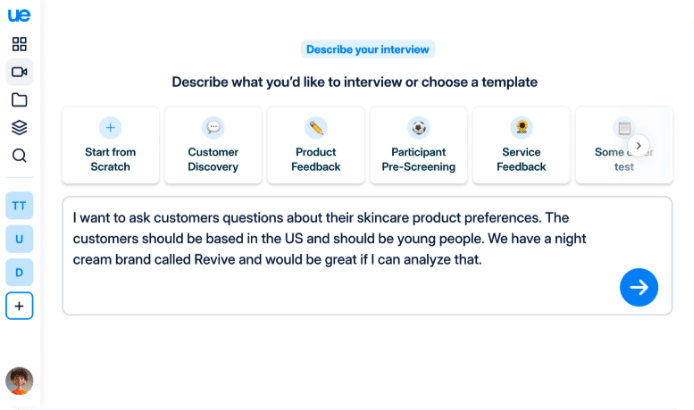
How AI has impacted the creative industry last week?
Welcome to the Mahazine, a weekly newsletter dedicated to creative professionals. In the mahazine you will find the latest AI news in the creative industry, inspiring visuals and experimentations, innovative ads and marketing campaigns, AI tools and tutorials.
📣 In the news

📰 The News: A new AI photo filter called the 'porcelain filter' has become a viral sensation among Chinese social media users. The filter, available through the Remini app, transforms ordinary selfies into porcelain-like figures with traditional Chinese clothing, pale complexions, and delicate makeup. The trend has amassed over 81,000 views on Xiaohongshu, with some users offering the service for a fee. The Remini app surpassed Douyin (TikTok) in iOS downloads during the first week of May.
🔍 Why it's important: The 'porcelain filter' trend reflects the growing interest among Chinese Gen Zers in reconnecting with their cultural heritage through contemporary design and technology. It aligns with the broader 'guochao' movement, which celebrates traditional Chinese motifs and aesthetics. The trend also speaks to the rapid adoption of AI-powered applications in China, fueled by government investment and consumer appetite for personalized online experiences. Brands can leverage this trend to tap into the guochao movement and appeal to young consumers' desire for cultural pride and self-expression through digital means.

📰 The News: Lisbon-based Today has unveiled Dreamia, an AI-powered character engine designed to shape storytelling in real-time for their upcoming cozy social simulation game where players cultivate virtual island communities.
🔍 Key Features: Dreamia uses AI to create intelligent, responsive non-player characters (NPCs) with lifelike behavior, profound discussions, emotional awareness, and the ability to adapt to player actions. These NPCs perceive environmental changes, offer contextual responses, and sustain memory for a continuous narrative experience unique to each player.
🧠 The Technology: Today's team fine-tunes open-source language models to enhance Dreamia's capabilities, utilizing a hybrid model of local and cloud-based systems for efficient performance and high-quality text/voice generation.
💰 Funding and Plans: After raising $5 million, Today plans to introduce a visual front-end later in 2024 for players and developers to create characters using Dreamia, with the game's alpha launch scheduled for early 2025.

📰 The News: Canva has announced a comprehensive redesign of its platform, along with the introduction of Canva Enterprise, a specialized tier aimed at larger organizations. The redesign includes a revamped homepage and editing experience, making tools more accessible. Canva Enterprise provides enhanced collaboration, brand management, and security features for professional teams and workspaces.
🔍 Why it's important: Canva is positioning itself as a unified solution for design, AI, and workflow tools, aiming to replace the fragmented ecosystem of specialized applications used by businesses. By expanding its offerings beyond digital design, Canva is targeting the office suite market, challenging established players like Adobe's Creative Cloud, Figma, and Google Workspace. The company aims to reduce "app sprawl" and organizational complexity by consolidating various creative and productivity tools into a single platform. This move aligns with Canva's goal of democratizing design and now extending its reach to streamline workflows for enterprises.
📰 The News: WPP, one of the world's largest advertising and marketing companies, has announced the integration of Anthropic's advanced Claude AI models, including Opus, Sonnet, and Haiku, into its intelligent marketing operating system WPP Open. This integration, facilitated by Amazon Bedrock, will provide WPP's 114,000 marketers with cutting-edge AI capabilities to enhance their work and deliver innovative solutions to clients.
🔍 Why it's important: The integration of Claude AI models into WPP Open brings several advantages to WPP and its clients:
Augmented human expertise: WPP marketers can leverage Claude's advanced language understanding and generation capabilities to augment their expertise, scale capabilities, and improve efficiency across various tasks like ideation, content creation, copywriting, and design.
Improved performance and accuracy: The Claude 3 model family, including Opus, Sonnet, and Haiku, offers extremely high levels of accuracy, performance, and speed, enabling better understanding of brand identity and high-quality marketing content generation.
Enhanced security and responsibility: By accessing Claude 3 through Amazon Bedrock, WPP can build generative AI applications with robust security, privacy, and responsible AI practices.
This move aligns with WPP's broader strategy to embrace emerging technologies and leverage AI to drive innovation in its work with clients. It also reflects the company's ongoing investment in AI, data, and technology, as well as its plans to capitalize on its leadership in the space by collaborating with companies like AWS and Anthropic.

📰 The News: Perplexity has launched a new product called "Perplexity Pages," which is an AI-powered platform that allows users to create, edit, and collaborate on documents using advanced language models. Pages is designed to empower creators, educators, researchers in any field to share knowledge through customizable pages.
🔍 Why it's important: Perplexity Pages represents a significant integration of AI into productivity and knowledge work. The platform offers seamless AI assistance, collaborative AI capabilities, and advanced language understanding powered by state-of-the-art language models. This could potentially increase efficiency, facilitate better teamwork, and provide more control over AI's influence on the final product compared to traditional word processors.
📰 The News: Sony Pictures CEO Tony Vinciquerra stated the company will use AI technology to produce movies and TV shows more efficiently during an investor conference in Japan.
🔍 Why It's Important: Vinciquerra's comments indicate Sony Pictures' interest in adopting AI tools to reduce costs and boost production efficiency. This comes as Hollywood unions like IATSE negotiate new contracts with studios, where the use of AI and its potential impact on labor is a key issue. Advances in AI have raised job displacement concerns among crew members, with union protections seen as a barrier to widespread AI adoption replacing human labor. Major studios exploring AI integration could disrupt traditional production workflows.
👀 Creative ads & campaigns

👉 What: Ford has launched an advertising campaign called "Be Surreal, Be Ford" with a series of visuals created with the help of AI. The campaign targets Millennials and Gen Z who value the latest technological advancements, reinforcing Ford's image as a tech-savvy and forward-thinking brand.
🔑 Key Message: The "Be Surreal, Be Ford" campaign showcases Ford's commitment to staying ahead of the curve by being the first in the automotive industry to adopt AI for its advertising. This helps Ford distinguish itself from competitors and position the brand as the most current and innovative option in the market.
Credits: BBa Ecuador

👉 What: Freepik has launched an exhibition called "Reimagine Málaga" at the El Sol Ibero-American Advertising Festival. The exhibition features reinterpreted versions of 8 famous advertising campaigns from brands like Adidas, Nike, Ikea, Old Spice, and Volvo, adapted to local Málaga businesses.
🔑 Key Message: The goal of this initiative is to democratize advertising that has historically been reserved for large brands. Freepik used AI to reinterpret these iconic campaigns and make them available to local Málaga businesses, providing them with access to top-tier creativity.
The reinterpreted ad posters will be on display from May 27 to 31 on the famous Larios Street in Málaga. Additionally, Freepik will kick off the festival's lecture series on May 30 with a panel discussion on "Artificial Intelligence + Human Creativity".
Credits: Freepik
🦄 Mahage visual diaries
Recent visual explorations by Mahage
Roland Garros tribute
🎾👒👟

💎 Tweet of the week
BOOST YOUR AI STRATEGY WITH MAHAGE

Elevate your Visual Productions, Digital Projects & Campaigns
Mahage is your strategic partner to leverage the power of AI in your business strategy with :
• AI Strategy & Training
• Creative AI Direction
• AI-Driven Design & Production
• Innovative AI Campaigns
Curious about how AI can skyrocket your business? 👉 We have the answers
🧠 AI tools
Qualitative research conducted, analyzed, and summarized by AI.

Ethical ai for creators. Train a personal ai on your artwork. Perfect and expand your creative practice, maintain ownership and control of everything.

The netflix platform for AI movies.

Kive is the all-in-one platform to generate ideas, produce professional content, organise assets, and build brands with AI.

📖 Interesting reads
Companies must build strategic alliances for generative AI that prioritize collaboration, scalable and reusable solutions, and maintaining control over their technology stack and intellectual property.

Generative AI offers businesses immense potential to revolutionize their operations, but implementing it requires careful consideration of design principles and user needs to deliver maximum value.

📰 Meet Gabrielle, the new Frenchie virtual influencer

Meet Gabrielle, a new virtual personality who's here to inspire people through her digital life. Gabrielle will take you on a wild ride through the worlds of gaming, art, culture, and tech while representing French culture. With her blend of positivity, fashion style, and vibrant personality, Gabrielle will captivate and inspire audiences everywhere.
As a digital influencer, she's breaking free from the limits of the physical world to create an immersive virtual presence. Get ready to meet Gabrielle in a world where everything is possible.
Did you like this content? Subscribe to get more content like this directly in your inbox.
If you enjoy the Mahazine, please spread the word by sharing it with your colleagues, friends, and fellow creatives. Your support in growing our community is invaluable as it allows us to reach more creative minds and continue delivering high-quality content.


